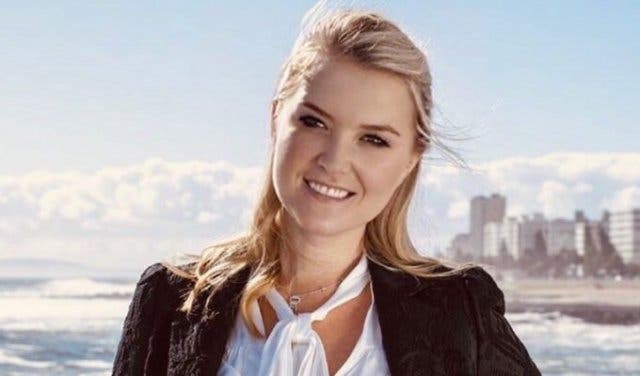![]() Free beach clean-ups with the Two ...
Free beach clean-ups with the Two ...
It happens every single month. See upcoming dates
| First-class advice on immigration to South Africa for individuals, families and corporate clients. | |
 | 076 914 7195/021 205 7761 |
 | Alfred Chambers, 2nd Floor, Cape Town Cruise Terminal, V&A Waterfront |
 | https://dejureimmigration.co.za/ |
 | kristina@dejureimmigration.co.za |
 | De Jure Immigration |
 | de_jure_immigration |
Including newly amended visas like remote work & critical skills visas
Last updated: Monday, 24 March 2025
Cape Town is a powerhouse of South African economic growth. Combined with its natural beauty and thriving food and arts scene, it makes complete sense that more and more foreign nationals want to live, work and retire here.
If you know someone who wants to move here, we’ve unpacked the most common visas with Kristina Dolischka (Gromova) from De Jure Immigration, including the newly amended ones like the remote work and critical skills visa.
“Immigration excites me and I love it,” says Kristina, who was born in Moscow, Russia and moved to South Africa at the age of 12.
“I know it's a life-changing decision that can cause a lot of stress. So many people get incorrect advice and a rejection can change your life story.”
Her boutique firm, De Jure, focuses exclusively on immigration, unlike larger firms where it’s just one department. Kristina has helped people from Germany, the Netherlands, Russia, Ireland, the USA, and beyond in making South Africa their new home.

Kristina has worked for the top immigration firms and lawyers in the country. Credit: Kristina Dolischka (Gromova)
While it’s possible to handle the paperwork yourself and acquire a visa, the risk of rejection is high. With so much documentation required, even a small mistake can lead to your application being denied.
“A rejection stays on your record and it makes it more difficult to receive a positive result.”
Working with a firm like De Jure significantly improves your chances of success. Plus, who really wants to deal with all that admin?
De Jure’s fees are also more affordable than larger firms, and as a boutique agency, clients receive personalised, one-on-one attention.
“I do not take a client on if I don’t think I can help them. Each person gets my attention, transparency, and personal touch.”
This new visa (also called the digital nomad visa) was implemented in October 2024. It allows applicants to live and work remotely in South Africa for up to three years and can be renewed.
How to qualify:
Applicants need to have a foreign employment contract that allows remote work and earn at least R54 000 per month before deductions.
You can see the full list of requirements for the remote work visa on the Department of Home Affairs website.
What Kristina wishes people knew:
“Many people mistakenly think they can be self-employed, but that’s not true – you need a letter from your employer confirming their approval of your remote work.”
Additionally, individuals from countries that have double taxation agreements with South Africa will not be taxed twice.
However, individuals from countries without a tax agreement must register with SARS within six months of getting their visas, as they’ll need it to renew their visas.

Remote work visas allow applicants to live and work remotely in South Africa for up to three years. Image: Unsplash
This visa is for foreign nationals who want to work here. In October 2024, a new point-based system was introduced for general work visas.
How to qualify:
Applicants that meet a minimum score of 100 points can qualify for a general work visa without having to obtain a recommendation from the Department of Employment and Labour (DEL).
The point-based system is based on:
Qualifications:
Annual gross remuneration:
Years of work experience:
Employer Trust Index:
Language proficiency:
A contract or offer of employment is required for general work visa applications.
If you do not meet the minimum 100 points, you must apply for a recommendation from the Department of Employment and Labour (DEL).
What Kristina wishes people knew:
“If you only have a high school qualification or a lower salary, your score will be too low to reach the required 100 points, making it much harder to qualify.”
Additionally, for workers like gardeners, chefs, childminders, and drivers, nothing has changed because they can’t reach 100 points. This is because:

General work visas are for foreign nationals who want to work here. Image: Unsplash
Some visas let you apply for permanent residency straight away, while others require a waiting period.
The most popular visa options for permanent residency applications are retirement, spousal, business, and critical skills visas.
If an individual wants to get permanent residency after having a business visa, they need to fulfil all the undertakings they made during the DTIC recommendation application. For example, they need to register with certain organisations and hire 60% South African citizens or permanent residents.
You can check the Department of Home Affairs website for all the details on how to become a permanent resident.

Many foreign nationals move to Cape Town for an improved quality of life or for a sense of adventure. Image: Tobias Reich/Unsplash
This visa allows you to retire in South Africa. Despite what many people think, there’s no age requirement for a South African retirement visa.
How to qualify:
You’ll need to show proof of a passive monthly income of at least R37 000. This can come from rental income, shares, interest from investments, or other financial sources.
If everything is in order, a retirement visa should take around 14 days to a month for approval. You can find the full list of required documents for a retirement visa on the Department of Home Affairs website.
What Kristina wishes people knew:
Cash in the bank does not count as an asset. You need a passive income, such as rental income, dividends, or royalties, to qualify.
Additionally, some South African embassies abroad are difficult to work with. The officials are often not well-trained and may ask for documents that aren’t legally required.
For example, some ask for birth certificates when applying for a work visa, but this isn’t needed by law. Still, many foreign nationals give in and submit the document to avoid delays caused by arguing with DIRCO officials.
A spousal visa is one of the easiest visas to get as it doesn’t require much paperwork beyond a marriage certificate. There are two types:
Visitor’s visa – Valid for three years and allows you to work.
Relative’s visa – Valid for two years and does not allow you to work.
How to qualify:
If you’re applying for a relative’s visa, your South African spouse must prove they can financially support you. They need to show a monthly income of at least R8 500 for the two-year period.
While the spousal visa is generally affordable and straightforward, many applications get rejected because the marriage (though registered in the applicant’s home country) needs to be registered with Home Affairs in South Africa.
What Kristina wishes people knew:
“The foreign spouse can come on a tourist visa and apply for a spousal visa from South Africa.” This means couples can start their life together in South Africa before securing a long-term visa.
You can also get a life-partnership visa. You need to prove that you have been together for two years or more, that you have been living together and that you have been contributing to finances together.
It is best to hire a lawyer for this. Rejections are common because many applicants struggle to provide clear proof of their relationship.

A spousal visa is one of the easiest visas to acquire. Image: Sandy Millar/Unsplash
Business visas are for foreign nationals who want to start a business in South Africa or invest at least R5 million in a South African company.
Getting a business visa can be a lengthy process because it involves multiple government departments.
How to qualify:
First, you’ll need to apply to the Department of Trade Industry and Competition (DTI) to determine whether your business fills an economic need in South Africa.
Once the recommendation letter from the DTIC has been received, the applicant can submit the business visa application to the Embassy/ Consulate abroad.
What Kristina wishes people knew:
Certain industries, like manufacturing, tourism, medicine, and oil and gas, are more likely to get a positive response because they contribute significantly to the economy.
You can find which industries are likely to be rejected on the Department of Home Affairs website.

Some industries (like tourism) can get a discounted minimum investment amount. Image: Microsoft365/Unsplash
This is for specific sectors that are seen as important in achieving the objectives of programmes like the National Development Plan and New Growth Plan. It’s based on one's educational and post qualification experience.
How to qualify:
The critical skills work visa applications are also processed using the point-based system. And to qualify for a visa, you’ll need to score at least 100 points.
If your job is listed on the 2023 Critical Skills List and you meet all the other requirements, you’ll automatically get 100 points.
For applicants whose jobs are on the list but don’t meet all other requirements, the point-based system will be used to assess your application. It looks at your annual salary, work experience, and language proficiency.
You’ll still need a job offer or contract to apply for a critical skills work visa. See the full critical skills list via the Department of Home Affairs website.
What Kristina wishes people knew:
“Previously people could apply for a critical skills visa without a job offer, but that’s no longer the case. You need an offer from an employer in South Africa to qualify.”
It’s also good to know that the Minister has partially waived the requirement to submit a SAQA certificate of evaluation with an application for a critical skills work visa.
Because of the delays at SAQA in the evaluation process, if you can prove that you have submitted your application to SAQA, you can apply for a critical skills visa which will be granted for one year.
You can also submit proof of application for registration with the professional body.

Many healthcare occupations are on the critical skills list. Image: Sasin Tipchai/Pixabay
As you can see, visa applications can be long and lengthy. If you’re interested in getting more advice on immigrating to South Africa, a consultation with Kristina can be booked via the De Jure website.
De Jure is open: Monday to Friday, 9am to 5pm
Book a consultation: Via De Jure’s website
Or contact directly: kristina@dejureimmigration.co.za; 021 569 7099
Find De Jure: Alfred Chambers, 2nd Floor, Cape Town Cruise Terminal, V&A Waterfront
By Saarah Gierdien
---
Here’s what should be on your Cape Town bucket list.
Explore the city with our 7+ Things to Do This Weekend.
New to the country? Read up about South Africa’s tipping norms.
---
Loved discovering this? Make sure you get our popular weekly newsletter. Follow and like us on Twitter ❤ Facebook ❤ LinkedIn ❤ Instagram ❤ Pinterest for updates.
![]() Free beach clean-ups with the Two ...
Free beach clean-ups with the Two ...
It happens every single month. See upcoming dates
![]() HintHunt escape rooms for epic ...
HintHunt escape rooms for epic ...
6 immersive themes, one being the best in Africa
![]() Brewery with food specials (almost) ...
Brewery with food specials (almost) ...
Daily specials on comfort meals like burgers and schnitzels
![]() Get over the midweek hump with a ...
Get over the midweek hump with a ...
Easy spot for team building, midweek date night, & more
![]() The hidden seaside bistro on the ...
The hidden seaside bistro on the ...
Sushi calamari, miso sirloin & rice krispies milkshakes
![]() Team building, stylish conferencing & ...
Team building, stylish conferencing & ...
Ultimate work-play-and-stay hub, Trail’s End
![]() Car rental specials in Cape Town
Car rental specials in Cape Town
Free upgrades, free data, 10% off luxury vehicles & more
![]() Accommodation special at Cederkloof ...
Accommodation special at Cederkloof ...
Book for 4, pay for 2. There’s hot tubs, hiking trails, pools…
![]() This boutique 5-star hotel offers ...
This boutique 5-star hotel offers ...
The signature Palm Journey includes a 3-course lunch